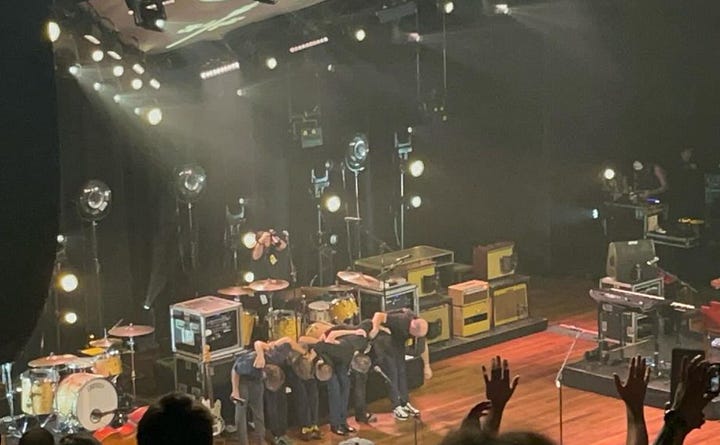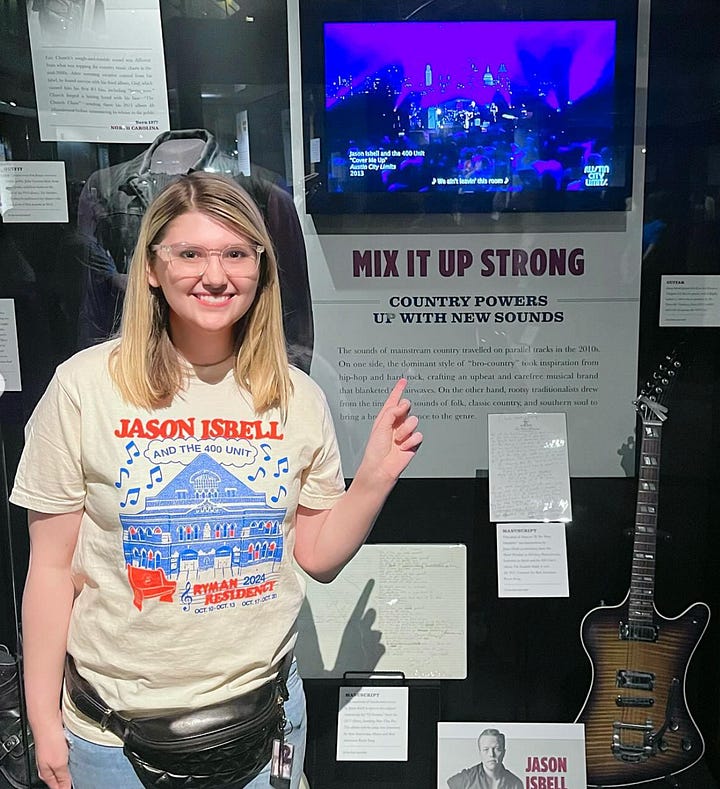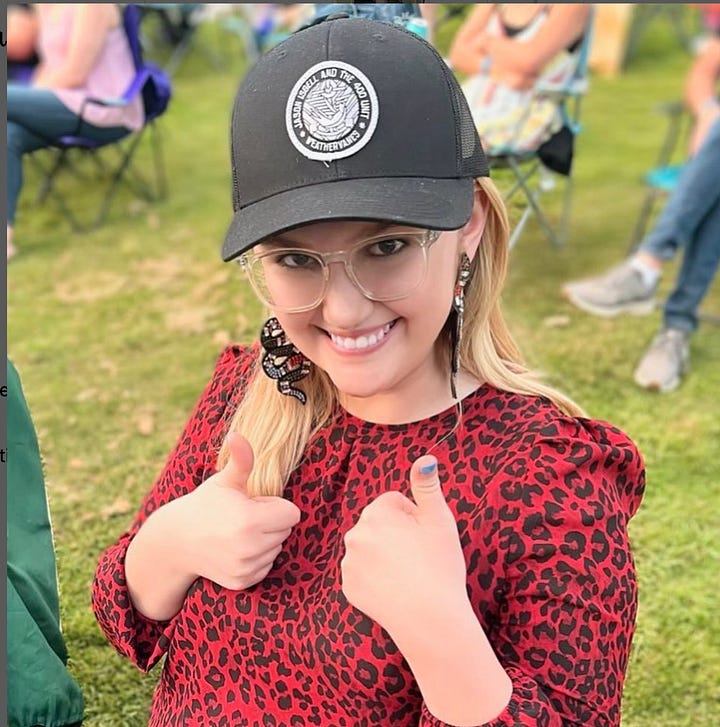To A Band That I Love: An Ode to Jason Isbell and the 400 Unit
My story about my favorite artist and how his music impacts me.




If you’re a listener of my show, a follower on my social media, or we’ve had a conversation, chances are you’ve heard me mention Jason Isbell. I’ve seen many musicians live, but there’s something uniquely powerful about Isbell and his band that resonates deeply with me. I don’t often open up about my personal life, but I want to share this story as a testament to the transformative power of music.
In the summer of 2021, I was 20 years old and preparing to begin my junior year of college. My parents had recently moved out of state, and I was struggling to find my footing in a post-lockdown world, grappling with feelings of loneliness and the challenge of fitting in. During this time, I was expanding my music taste, venturing into genres like Americana and folk. One name kept surfacing: Jason Isbell.
I first heard about him from the frontman of one of my new favorite bands, American Aquarium, who spoke about Isbell as both an influence and collaborator. I began to see ads for his shows pop up online, and I even heard his name mentioned in passing conversations. Although I’d heard Isbell’s name in the context of country music—which I wasn’t particularly interested in at the time—it now felt inescapable.
One day, while at school, I decided it was finally time to give him a listen. I pulled up his most popular song on Spotify, "If We Were Vampires." As soon as that haunting guitar line hit and Isbell’s vocals poured through my headphones, I was covered in goosebumps. I usually have music playing in the background while I work, but this time, I stopped everything to absorb every word. The lyrics, the emotion, the raw beauty of that song—it was all overwhelming.
From that moment on, I was hooked. Each song that followed felt like it was meant to be there, soothing my nerves and helping me navigate the uncertainty I was experiencing. Isbell’s guitar riffs and poignant storytelling became the soundtrack to my everyday life, and I’ve been a dedicated fan ever since.
This time in my life was not easy. I didn’t have the typical college social experience; I struggled to fit in. I tried joining social clubs and campus activities but still felt out of place. This was my first time living in a different state from my parents, and as someone with high-functioning autism, the social dynamics and changes were particularly challenging. Music has always been my greatest comfort, often acting as my “special interest.” When I connect with an artist, I dive into everything they’ve released, watch their videos on YouTube, and read any articles I can find.
During those difficult days, I found solace in watching Isbell's concerts, reading interviews, and discovering his earlier work with the Southern rock legends, The Drive-By Truckers.
I also face processing challenges; I often need to read the same page of a book multiple times to grasp the content, watch movies with subtitles, and struggle to group topics for reflection papers in college. Even after hearing a song a hundred times, I can’t always articulate its meaning. But with Isbell, something clicked.
His songwriting paints vivid pictures in my mind. I can visualize the stories he tells, and for the first time, I was able to connect with lyrics on a deeper level. One song that stands out is "Last of My Kind" from The 400 Unit's 2017 record, The Nashville Sound, which centers around themes of anxiety and social change. The narrator asks the question, “Am I the Last of My Kind?” He reflects on the differences he feels between this new city and his home, noting how he can’t dance like the locals, the scenery feels foreign, and he is often laughed at. Although Isbell has mentioned certain dramatic elements in the song that I did not experience, the core message of feeling like an outcast really resonated with me.
I was in a college town filled with people I struggled to connect with; many of my peers didn’t understand my interests or my Southern mannerisms, leaving me to feel like I was the last of my kind. Despite the differences in our backgrounds, Isbell’s words felt deeply relatable.
Almost two years since I graduated with my Bachelor’s degree, I’ve been soundtracked by Isbell’s music since I first listened in my junior year. I’ve seen him live five times, and during my senior year, I had the incredible opportunity to intern remotely with his music management and distributor, Thirty Tigers. My favorite Isbell memories are from his fall residency at the Ryman Auditorium in Nashville. Each year, he plays for eight nights in October, with shows that differ from the typical 400 Unit setlists, as fans travel from all over to see him perform.
For the past two years, I’ve made the trip from Mississippi to Nashville for these shows, and this past week, I had the privilege of attending the opening night of the residency. Overcome with emotions, I realized I was no longer the confused and sad person I had been in 2021. I am now a second-year master’s student attending a school I love, a DJ sharing my passion for music each week, and this time I even brought two friends along to share this experience with me.
During the show, I couldn’t help but cry while listening to my favorite songs and witnessing the incredible musicians accompanying Isbell: Sadler Vaden on guitar, Chad Gamble and Will Johnson on drums, Derry DeBorja on keys, and Anna Butterss on bass. I even had the chance to talk with one of Isbell’s crew members about my journey, feeling content and grateful to have found music that resonates so deeply with me.
As I look ahead, I am filled with excitement for the future. I hope to attend many more shows and, one day, have the opportunity to shake Jason’s hand and express my heartfelt gratitude. Isbell’s artistry has not only shaped my taste but has also played an essential role in helping me understand myself and my place in the world. Here’s to many more years of inspiration and connection through the magic of music.



